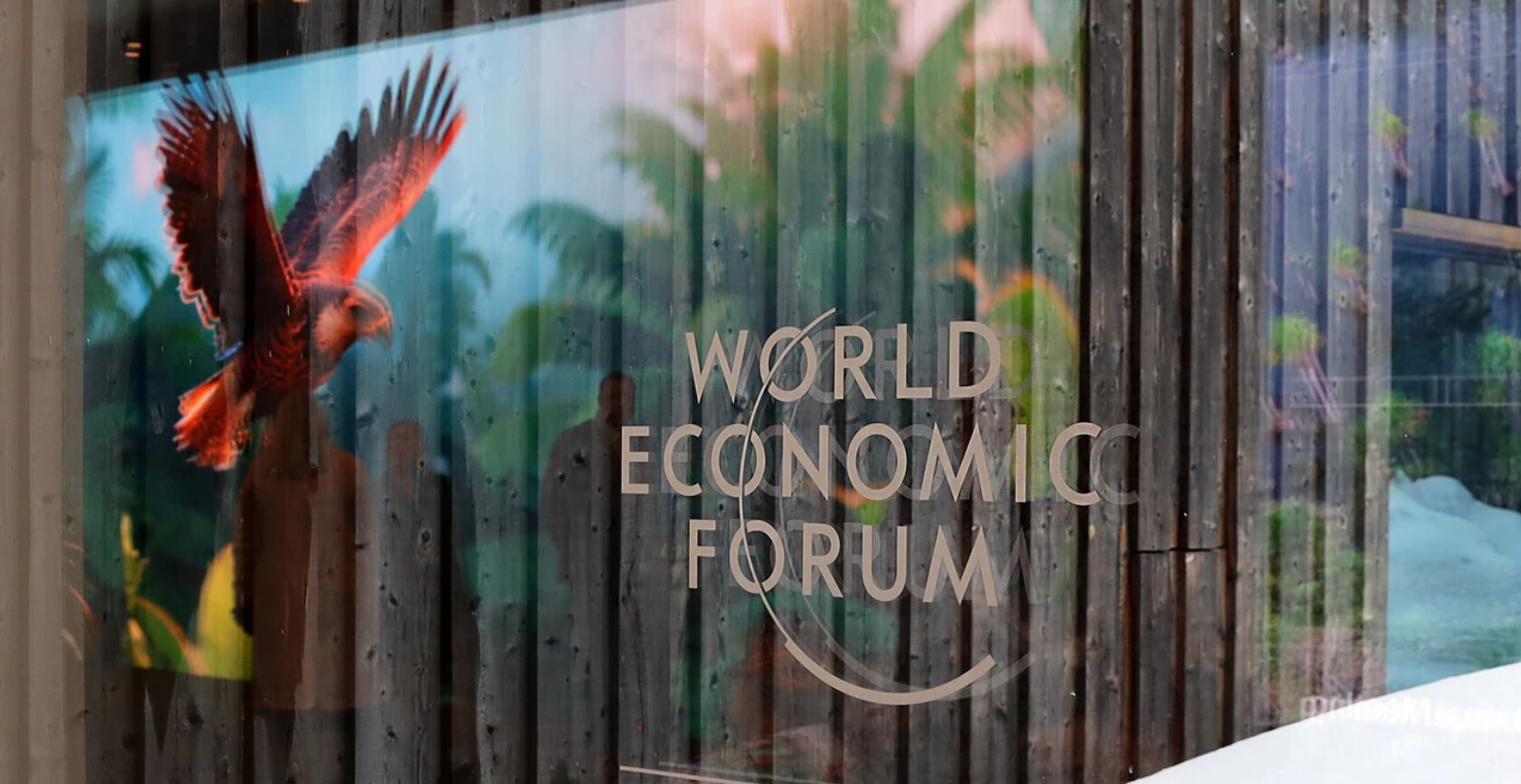The health strategist
the most comprehensive knowledge center,
for fixing and digitizing health care
Joaquim Cardoso MSc.
Servant Leader, Chief Research & Strategy Officer (CRSO),
Editor in Chief and Senior Advisor
January 24, 2024
Article published by Boston Consulting Group (BCG) and written by Christoph Schweizer and Rich Lesser on January 18, 2024.
What are the key points?
Broader Themes at Davos:
The challenges and opportunities related to artificial intelligence, geopolitics, macroeconomics, and climate change are the most pressing issues for leaders.
The theme for the year was “Rebuilding Trust,” focusing on navigating rapid change and uncertainty to rebuild foundations for dialogue and action.
GenAI (Generative AI) Discussion:
GenAI was a prominent topic at Davos, with CEOs exploring how to use it for value creation and responsible deployment.
BCG identifies three key value plays for GenAI: deploying in everyday tasks, reshaping critical functions, and inventing new business models.
Talent Challenges and Responsible AI:
Only 6% of companies have trained more than 25% of their people on GenAI tools.
Leaders need to demonstrate a strong commitment to responsible AI to build trust among employees, customers, and society.
Macroeconomics and Geopolitics:
Talks on macroeconomics were generally more optimistic, with a sense that interest rates could come down, and employment and growth are holding up better than expected.
Geopolitical risks, such as elections, ongoing conflicts, and uncertainties in the US-China relationship, pose challenges.
Building Resilience:
Many macroeconomic and geopolitical issues are beyond business leaders’ control.
The emphasis is on building resilience through anticipation, scenario planning, intelligence tools, and agility to adapt to a changing world.
Climate Action:
Leaders expressed readiness to take action on climate change.
The article highlights the need for translating climate commitments into action and outlines five areas of opportunity for business leaders to accelerate progress.
- Accelerate supplier decarbonization.
- Enable customers to make greener choices.
- Drive change with peers in your sector, especially in supply chain “pinch points.”
- Engage in cross-industry partnerships.
- Advocate for—and support—bolder policies.
Alliance of CEO Climate Leaders:
BCG is a member of the Alliance of CEO Climate Leaders, and they published their fourth annual report on accelerating progress in addressing climate change.
The report focuses on what committed leaders in business and government can do to catalyze faster systemic change.

This is a special edition of Up Next from BCG, coming directly from CEO Christoph Schweizer and global chair Rich Lesser as they wind up their week at the World Economic Forum’s Annual Meeting in Davos.
As our week in Davos comes to a close, we wanted to share our reflections about the broader themes that came up here again and again. The sustained challenges (and opportunities) related to artificial intelligence, geopolitics, macroeconomics, and climate change continue to be the most pressing issues for leaders.
This year’s theme, “Rebuilding Trust,” acknowledged the divisions within and between countries and between people and their leaders. The focus was on how to navigate rapid change and continued uncertainty so we can rebuild the foundations of dialogue and action needed to create lasting gains for everyone—particularly those who are struggling.
Here are some of our observations from the week:
Talk of GenAI was everywhere. Just over a year ago, generative AI burst onto the scene. Since then, CEOs have been working to learn how this technology can be used to drive value creation and how to deploy it responsibly. As we enter 2024, the race is on as leaders roll up their sleeves to put ideas into action.
At BCG, we are seeing three key value plays, in increasing order of difficulty as well as potential competitive advantage:
- Deploying GenAI in Everyday Tasks. GenAI can offer quick wins by bringing welcome changes to the day-to-day work experience, freeing up time for more value-adding activities and increasing productivity—typically by 10% to 20%.
- Reshaping Critical Functions. GenAI can deliver 30% to 50% efficiency and effectiveness gains—or even more—when it’s used to reshape processes and functions, such as IT, customer service, marketing, R&D, field services, and engineering. This often requires combining purpose-built GenAI tools with predictive AI and proprietary data, along with heavy investments in people and change management to scale and capture business value.
- Inventing New Business Models. Some of the most exciting moves involving GenAI will go well beyond increasing productivity. The technology can help reinvent customer experiences, create new services and offerings, and even build new business models, allowing for the pursuit of new revenue streams.
Whatever the ambition, getting the talent challenges right will be critical. Our recent research shows that only 6% of companies have trained more than 25% of their people on GenAI tools so far. And leaders need to demonstrate a strong commitment to responsible AI, so that employees, customers, and society feel they can trust the change that happens.
In fact, much of the Davos conversation centered on responsible AI: creating greater transparency and accountability and avoiding issues of hallucination, bias, misinformation, and the undermining of societal values. There is so much work to do on these topics—ideally with coordination across countries and consistent rules for businesses everywhere, as the technology cuts across geographic boundaries.
Macroeconomics and geopolitics were still hot topics—but the mood was reversed from last year. Talk about macroeconomics was generally more upbeat than a year ago. There are still challenges ahead, of course, particularly in parts of Europe and in China. But leaders seemed encouraged by the sense that interest rates have peaked and could come down in the near future, while employment and growth have both held up better than expected, as have stock markets.
The flip side to that cautious optimism is the state of geopolitics and the risk of further polarization ahead. Half the world’s population lives in countries holding nationwide elections this year, and the results of some of those elections could challenge climate policies, geopolitical stability, and more. Ongoing wars and conflicts—with highly unpredictable outcomes—are causing enormous human impact. And while the US-China relationship has improved in recent months, uncertainties remain high.
Many macroeconomic and geopolitical issues are outside business leaders’ control. The best approach is to focus on building a company’s resilience.
Many of these issues are outside business leaders’ control. The best approach is to focus on building resilience through better anticipation and scenario planning, more robust intelligence and rapid response tools, and more agility to adapt as the world changes. Leaders also need to think hard about how they might respond to complicated situations, sometimes speaking out—when issues align with their values, purpose, and strategy—and sometimes not.
On climate, leaders were ready to take action. Many companies and governments have made valuable commitments to tackling climate change, but progress overall has been much too slow. Participants at Davos were eager to figure out how to translate intent into action—a central focus of the Alliance of CEO Climate Leaders, of which we’re proud to be members.
With the WEF, BCG published our fourth annual report on how to accelerate progress, focusing on what committed leaders in business and government can do to catalyze faster systemic change. We encourage you to read the report. (See link below.) For business leaders, there are five areas of opportunity:
- Accelerate supplier decarbonization. For many companies, the emissions of their suppliers are three to eight times greater than their own Scope 1 and 2 emissions. It’s possible to cut 50% of many products’ supply chain emissions with an end-price increase of less than 1%.
- Enable customers to make greener choices. Companies can also substantially decrease their footprint through product redesign, circularity, and the reduction of customers’ energy consumption.
- Drive change with peers in your sector, especially in supply chain “pinch points.” In many key industries, ten companies or fewer control more than 40% of the market, which means alliances have the power to effect significant change. Clearer product labeling is another great area of opportunity.
- Engage in cross-industry partnerships, especially large-scale buying groups, to mobilize capital and accelerate the development and scaling of advanced technologies.
- Advocate for—and support—bolder policies. First, make sure you and your lobbying partners are not harming climate progress in your government engagements. Then, look for opportunities where you can go further to be an effective partner to governments and encourage bold and pragmatic changes in incentives, policies, and reporting.
Davos is always an important opportunity to reflect on the challenges we’re facing and engage with world leaders on the power to drive positive change. The conversations this year were sobering but also full of possibility. Now it’s time to get down to work.
To read the original publication, click here.








